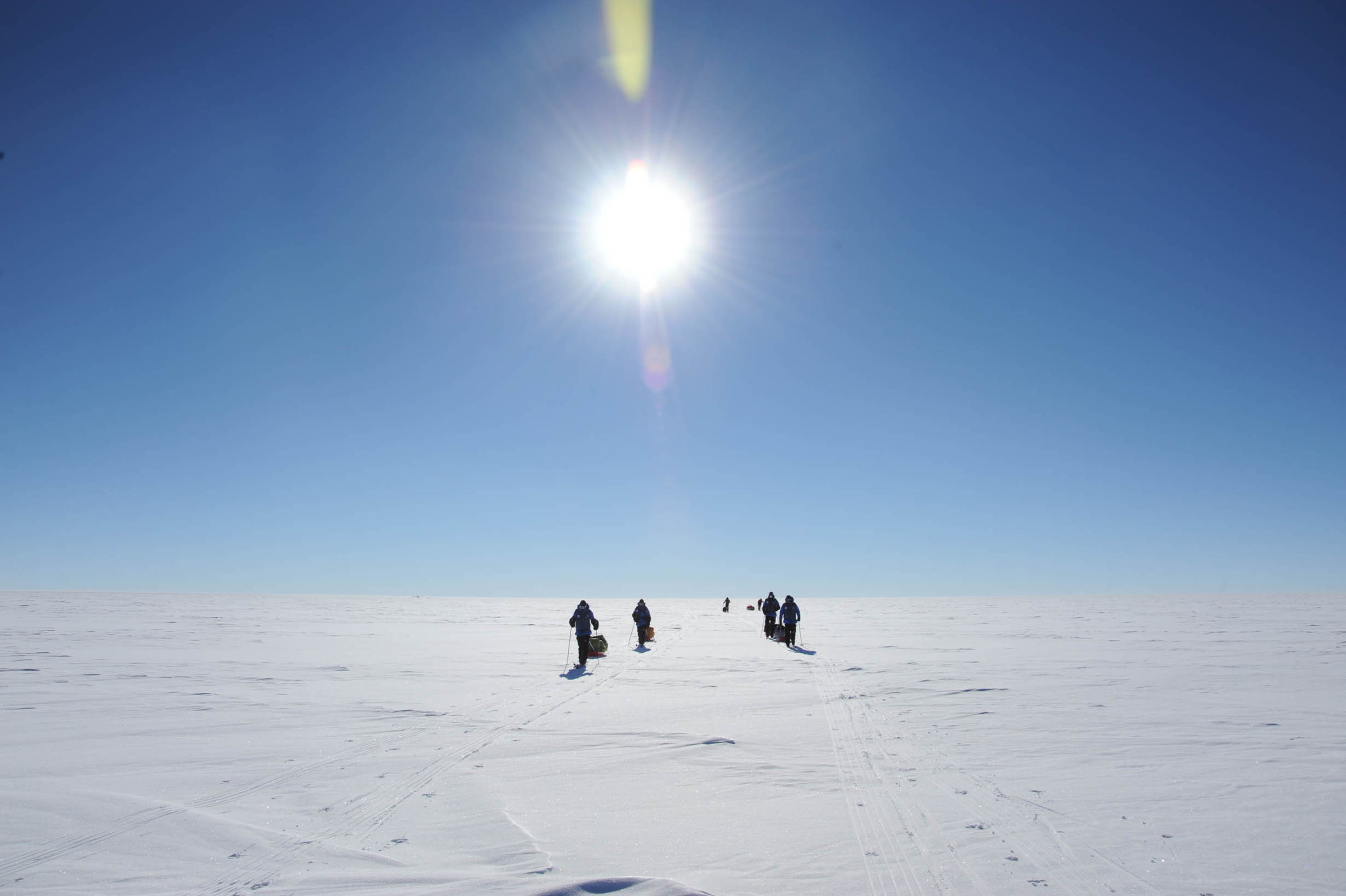Scientists discover fossils that prove Antarctica used to be covered in forest


A free daily email with the biggest news stories of the day – and the best features from TheWeek.com
You are now subscribed
Your newsletter sign-up was successful
Antarctica's modern-day icy climate betrays its lush, forested past, National Geographic reported Wednesday.
An expedition between November 2016 and January 2017 uncovered 13 fossil fragments from trees that thrived over 260 million years ago — before mass extinction — leading scientists to believe that at one point, Antarctica was actually covered in green. The period in question likely happened between 400 million and 14 million years ago, scientists estimate.
The 13 fossils are some of the best preserved plant life in the world, researchers on the expedition said. "Antarctica preserves an ecologic history of polar biomes that ranges for about 400 million years, which is basically the entirety of plant evolution," Erik Gulbranson, a paleoecologist at the University of Wisconsin-Milwaukee, told Life Science.
The Week
Escape your echo chamber. Get the facts behind the news, plus analysis from multiple perspectives.

Sign up for The Week's Free Newsletters
From our morning news briefing to a weekly Good News Newsletter, get the best of The Week delivered directly to your inbox.
From our morning news briefing to a weekly Good News Newsletter, get the best of The Week delivered directly to your inbox.
Researchers aim to pinpoint how these prehistoric plants were able to transition between seasons rapidly, surviving through dark winters and 24-hour sunshine. Modern plants take months to transition between seasons and couldn't survive a sudden plunge into freezing darkness.
The trans-national expedition team will return to the polar landscape in the next few weeks equipped with helicopters to help them access land closer to the fossil forests, Life Science reports.
A free daily email with the biggest news stories of the day – and the best features from TheWeek.com
Elianna Spitzer is a rising junior at Brandeis University, majoring in Politics and American Studies. She is also a news editor and writer at The Brandeis Hoot. When she is not covering campus news, Elianna can be found arguing legal cases with her mock trial team.q
-
 What are the best investments for beginners?
What are the best investments for beginners?The Explainer Stocks and ETFs and bonds, oh my
-
 What to know before filing your own taxes for the first time
What to know before filing your own taxes for the first timethe explainer Tackle this financial milestone with confidence
-
 The biggest box office flops of the 21st century
The biggest box office flops of the 21st centuryin depth Unnecessary remakes and turgid, expensive CGI-fests highlight this list of these most notorious box-office losers
-
 Blue Origin launches Mars probes in NASA debut
Blue Origin launches Mars probes in NASA debutSpeed Read The New Glenn rocket is carrying small twin spacecraft toward Mars as part of NASA’s Escapade mission
-
 Dinosaurs were thriving before asteroid, study finds
Dinosaurs were thriving before asteroid, study findsSpeed Read The dinosaurs would not have gone extinct if not for the asteroid
-
 SpaceX breaks Starship losing streak in 10th test
SpaceX breaks Starship losing streak in 10th testspeed read The Starship rocket's test flight was largely successful, deploying eight dummy satellites during its hour in space
-
 Rabbits with 'horns' sighted across Colorado
Rabbits with 'horns' sighted across Coloradospeed read These creatures are infected with the 'mostly harmless' Shope papilloma virus
-
 Lithium shows promise in Alzheimer's study
Lithium shows promise in Alzheimer's studySpeed Read Potential new treatments could use small amounts of the common metal
-
 Scientists discover cause of massive sea star die-off
Scientists discover cause of massive sea star die-offSpeed Read A bacteria related to cholera has been found responsible for the deaths of more than 5 billion sea stars
-
 'Thriving' ecosystem found 30,000 feet undersea
'Thriving' ecosystem found 30,000 feet underseaSpeed Read Researchers discovered communities of creatures living in frigid, pitch-black waters under high pressure
-
 New York plans first nuclear plant in 36 years
New York plans first nuclear plant in 36 yearsSpeed Read The plant, to be constructed somewhere in upstate New York, will produce enough energy to power a million homes
